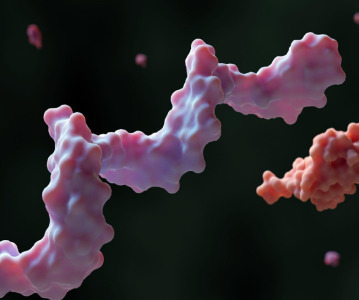NIH Network Revolutionises Stroke Clinical Research

A network of 25 regional stroke centers working with nearby satellite facilities will span the country, have teams of researchers representing every medical specialty needed for stroke care and will address the three prongs of stroke research: prevention, treatment and recovery. The Centers were announced 12 December 2013 by the National Institutes of Health.
“The new system is intended to streamline stroke research, by centralising approval and review, lessening time and costs of clinical trials, and assembling a comprehensive data sharing system,” said Petra Kaufmann, MD, the associate director for clinical research at the National Institute of Neurological Disorders and Stroke (NINDS).
NINDS, which will fund and manage the NIH Stroke Trials Network, or NIH StrokeNet, has a strong history of successful stroke clinical trials during the past 40 years, leading to some astonishing advances in treatment and prevention of the disease, including the first treatment for acute stroke, announced in 1995.
The 25 centers are strategically placed in every region of the country (a complete list of centers their principal investigators, and media contacts is attached). Successful applicants demonstrated experience in stroke research and recruitment, including the ability to enroll underrepresented populations, and were required to offer access to the full cadre of specialties that are involved in stroke care. These include: emergency medicine, neurosurgery, interventional neuroradiology, vascular neurology, neurointensive care, neuroimaging, stroke rehabilitation and pediatric neurology.
Each center will receive 5-year funding, with $200,000 in research costs and $50,000 for training stroke clinical researchers per year during the first 3 years, and additional funds driven by the completion of milestones. The University of Cincinnati will manage the national clinical coordinating center, which will oversee and coordinate the institutional review board and master trial agreements for all of the regional centers. NIH will announce the award of a national data management center in February.
NIH StrokeNet investigators, working with the broader stroke community, will propose, develop and conduct stroke protocols to be administered within the network and train the future generation of clinical researchers in stroke.
Historically, the model for stroke clinical trials was to complete large teams of personnel and infrastructure, which were then disassembled once the trial was completed. This led to delays in patient recruitment and additional costs when new trials were initiated, with some stroke clinical trials lasting many years longer than anticipated and costing millions of dollars more than the original estimate.
In a 2013 article in Stroke, Story Landis, PhD, NINDS director, and co-author Marc Fisher, MD write: “Because our ultimate goal is to test and compare therapies that will have a real impact on patient health, a co-ordinated and long range approach to solving challenges in stroke trial research is sorely needed.”
The network concept evolved from an NINDS planning effort in which stroke experts were asked what is most needed to reduce death and disability due to stroke in the US. They called for a nationwide stroke network that would allow for a more seamless transition between early safety and efficacy trials and Phase II and III clinical trials.
“NIH StrokeNet will allow the most promising therapies to quickly advance to the clinic, to improve prevention, acute treatment, or rehabilitation of the stroke patient,” said Walter J. Koroshetz, MD, NINDS deputy director. “We need to have a balance of approaches to decrease the burden of illness due to stroke.”
“Our goal for the NIH Stroke Centers Network is to initiate four to five NINDS-funded exploratory Phase I and II stroke clinical trials, and two to four Phase III trials during the next 5 years. This is a major challenge which we believe the stroke research community will embrace,” said Scott Janis, PhD, NINDS programme director of the NIH StrokeNet.
Related News
-
News Google-backed start-up raises US$600 million to support AI drug discovery and design
London-based Isomorphic Labs, an AI-driven drug design and development start-up backed by Google’s AI research lab DeepMind, has raised US$600 million in its first external funding round by Thrive Capital. The funding will provide further power t... -
News AstraZeneca to invest US$2.5 billion in Beijing R&D centre
Amid investigations of former AstraZeneca China head Leon Wang in 2024, AstraZeneca have outlined plans to establish its sixth global strategic R&D centre in China. Their aim is to further advance life sciences in China with major research and manufact... -
News Experimental drug for managing aortic valve stenosis shows promise
The new small molecule drug ataciguat is garnering attention for its potential to manage aortic valve stenosis, which may prevent the need for surgery and significantly improve patient experience. -
News How GLP-1 agonists are reshaping drug delivery innovations
GLP-1 agonist drug products like Ozempic, Wegovy, and Mounjaro have taken the healthcare industry by storm in recent years. Originally conceived as treatment for Type 2 diabetes, the weight-loss effects of these products have taken on unprecedented int... -
News A Day in the Life of a Start-Up Founder and CEO
At CPHI we work to support Start-Up companies in the pharmaceutical industry and recognise the expertise and innovative angles they bring to the field. Through our Start-Up Programme we have gotten to know some of these leaders, and in this Day in the ... -
News Biopharmaceutical manufacturing boost part of new UK government budget
In their national budget announced by the UK Labour Party, biopharmaceutical production and manufacturing are set to receive a significant boost in capital grants through the Life Sciences Innovative Manufacturing Fund (LSIMF). -
News CPHI Podcast Series: The power of proteins in antibody drug development
In the latest episode of the CPHI Podcast Series, Lucy Chard is joined by Thomas Cornell from Abzena to discuss protein engineering for drug design and development. -
News Amgen sues Samsung biologics unit over biosimilar for bone disease
Samsung Bioepis, the biologics unit of Samsung, has been issued a lawsuit brought forth by Amgen over proposed biosimilars of Amgen’s bone drugs Prolia and Xgeva.
Recently Visited
Position your company at the heart of the global Pharma industry with a CPHI Online membership
-
Your products and solutions visible to thousands of visitors within the largest Pharma marketplace
-
Generate high-quality, engaged leads for your business, all year round
-
Promote your business as the industry’s thought-leader by hosting your reports, brochures and videos within your profile
-
Your company’s profile boosted at all participating CPHI events
-
An easy-to-use platform with a detailed dashboard showing your leads and performance







.png)